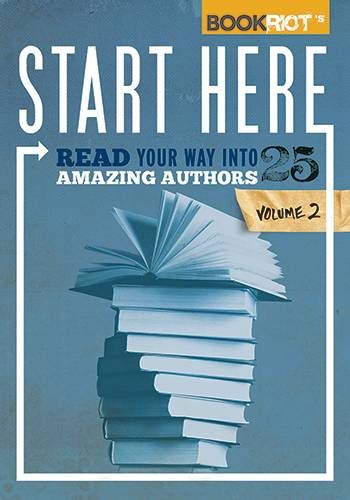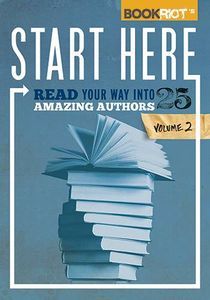
START HERE, Vol. 2 Write-In Giveaway: Finalist #3

_________________________
Haruki Murakami
What I’ve found is that people like their first Murakami novel the best. It’s the entry into the Zenderland of the Murakami mind. Strange and sometimes violent things happen in these worlds, and, like a more-benevolent Philip K. Dick novel, afterwards we jump on the floor a little to see if the world is just a big trampoline.
My sister Sandra wouldn’t read Jane Austen’s Sense and Sensibility because there are only six Jane Austen novels, and she didn’t want to be finished. I nagged her so much about the dire possibility that she could die without ever having read Sense and Sensibility that she finally broke down and finished the Austen oeuvre. But this must run in the family — both the book stinginess, and the sense that we will never die — because even though I’m superstitious to the point that I vote in the mornings before work so my vote will count if I get hit by a bus, I’ve managed to successfully ration my Murakamis to about one a year, as if I will never die, because he’s a mind trip, and I need to continue to hit that reset button periodically.
So, you could start with the biggie, The Wind-Up Bird Chronicle. This is the book that brought Murakami to the notice of English language readers in 1998. (I don’t read Japanese and probably you don’t either, so these are all English publication dates.) It’s said that Murakami, who at the time owned an American-music jazz nightclub in Tokyo, had the revelation that, if one was allowed to do this with fiction, he would be a writer. This novel follows a contemporary young Japanese man whose wife has disappeared. If you liked “Twin Peaks” or “Lost,” you’ll feel at home in this world.
Or, my favorite, Hard-Boiled Wonderland and the End of the World (1985), a mystical novel concerning a young man embroiled with a mysterious woman and her strange son, which inexplicably alternates with chapters set in a rustic island community straight out of the local Renaissance Faire. This book is like a koan, one of those Zen questions that make no sense until you get it, but when you finally do, there’s a sense of seeing with almost too much clarity into human sorrow and exquisite beauty.
Murakami himself was influenced by the English detective novels he read as a boy in Kobo, Japan — detective stylists like Raymond Chandler and Ross MacDonald — going on to read Vonnegut, Kafka, and Brautigan. He said once that his goal would be to have elements of both Dostoevsky and Chandler in his books, and he achieves this to a degree in most of his work.
Just don’t start with 1Q84. While I’ve met a woman who read this one first and couldn’t wait to continue, I found that one, which was released in Japan as a trilogy, too bloated to have the effect of even the short, Brautigan-like A Wild Sheep Chase (1989). And unless you want to read Murakami’s challenge to himself to write a “realistic” novel, don’t start with Norwegian Wood (2000) either – that was the only book of his that I was relieved to finish.
One of my friends started with Kafka on the Shore, and despite reading others, this plunge into the deep end of the Murakami pool remains her own personal favorite. So here’s what you do. Go into a larger independent bookstore, and do like my friend did. Read the back covers of the books and see which keywords grab you. One of them will sound irresistible. Start there.
When you put down a Murakami book, either in the middle somewhere for a break, or at the end while waiting for the full effect to wash back over you like a sleeper wave, or shake you like an aftershock even bigger than the original earthquake, the leaves on the tree will look distinct. You’ll be looking into alley-ends for ladders, and for magical manhole covers. Life will look both more serious and ridiculously collapsed into something bigger. Put on a Tom Waits album and have a cup of tea. You may get used to it, but you’ll never get over it.











